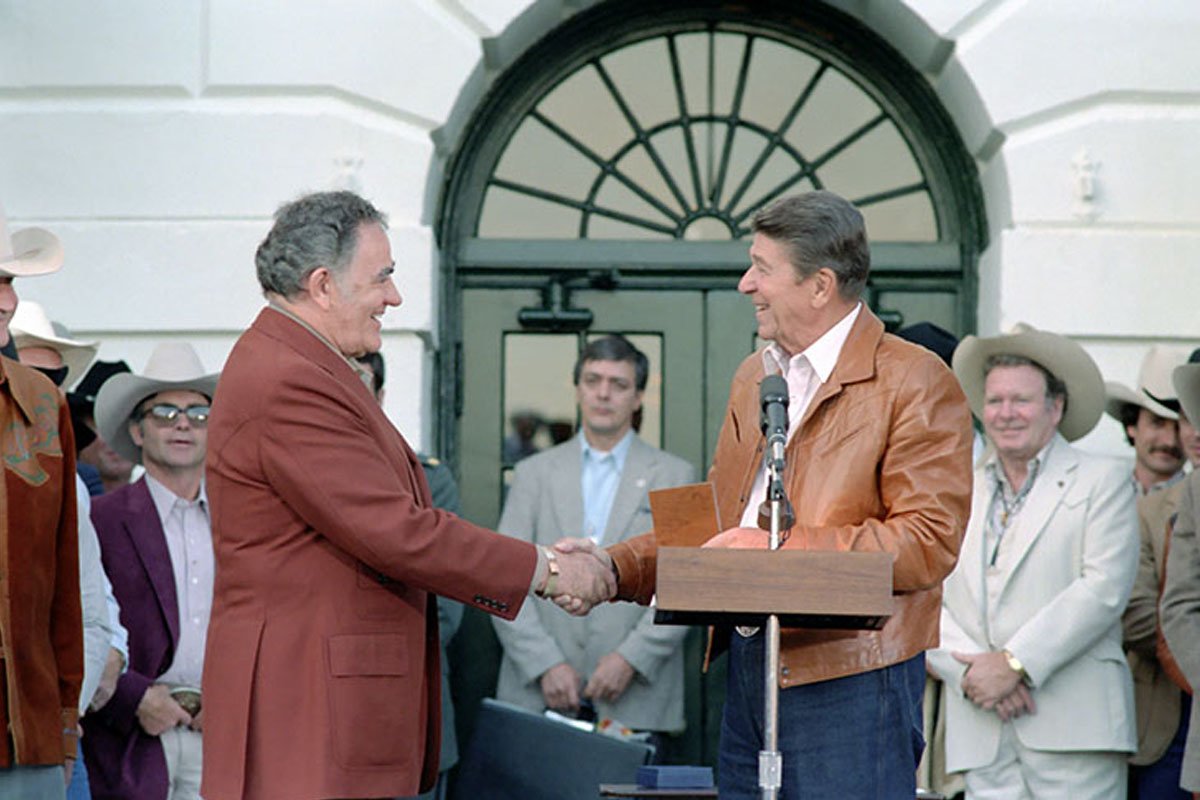
9/24/1983 President Reagan presenting Congressional Gold medal to Louis L’Amour at Barbecue for Professional Rodeo Cowboys Association on South Lawn. Photo courtesy of the White House/Ronal Reagan Presidential Library.
Louis L’Amour published more than 100 novels — under his name as well as the pseudonyms Tex Burns and Jim Mayo — wandered the world, served in the military, and spread his joy of learning and reading.
“That was Louis’s way, to find something of value from every printed page,” said American historian Daniel Boorstein.
L’Amour was born Louis Dearborn Lamoore in Jamestown, North Dakota, in 1908. He began his life among the fields and cows in North Dakota, where he spent much of his time playing games like “cowboys and Indians” in his family’s barn that doubled as his father’s veterinary office. The rest of L’Amour’s time was spent at his local library, the Alfred E. Dickey Free Library, with a particular interest in British author G.A. Henty, who wrote historical novels primarily for young boys.
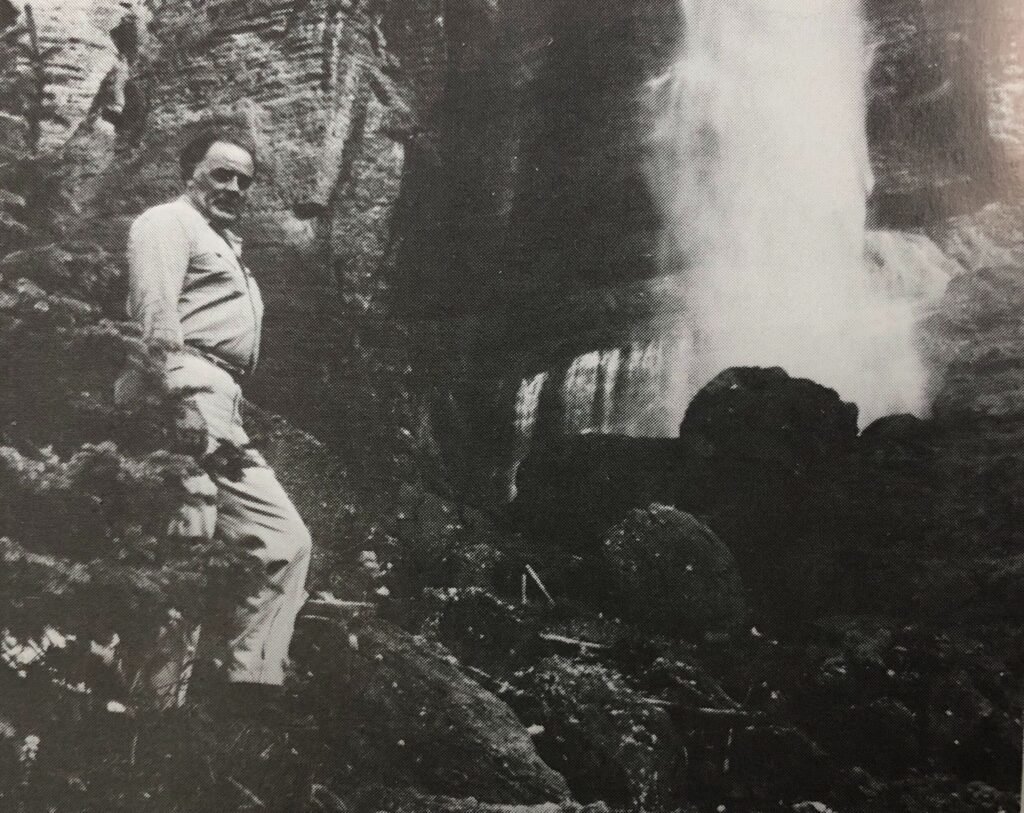
“[Henty’s works] enabled me to go into school with a great deal of knowledge that even my teachers didn’t have about wars and politics,” said L’Amour.
L’Amour was an avid reader and took every opportunity to squeeze in more reading time. “Often I hear people say they do not have the time to read,” L’Amour said. “That’s absolute nonsense. In one year during which I kept that kind of record, I read twenty-five books while waiting for people. In offices, applying for jobs, waiting to see a dentist, waiting in a restaurant for friends, many such places. I read on buses, trains, and planes.”
L’Amour’s lifestyle maintained a relative consistency among hay bales and cows for years, where he listened to his paternal grandfather tell stories of the Civil and Indian wars. Then, in the early 1920s, a number of bank failures rocked the Midwest and eventually forced him and his family out of North Dakota. This all but took L’Amour out of school and led to his eventual focus on self-education while on the road with his family.
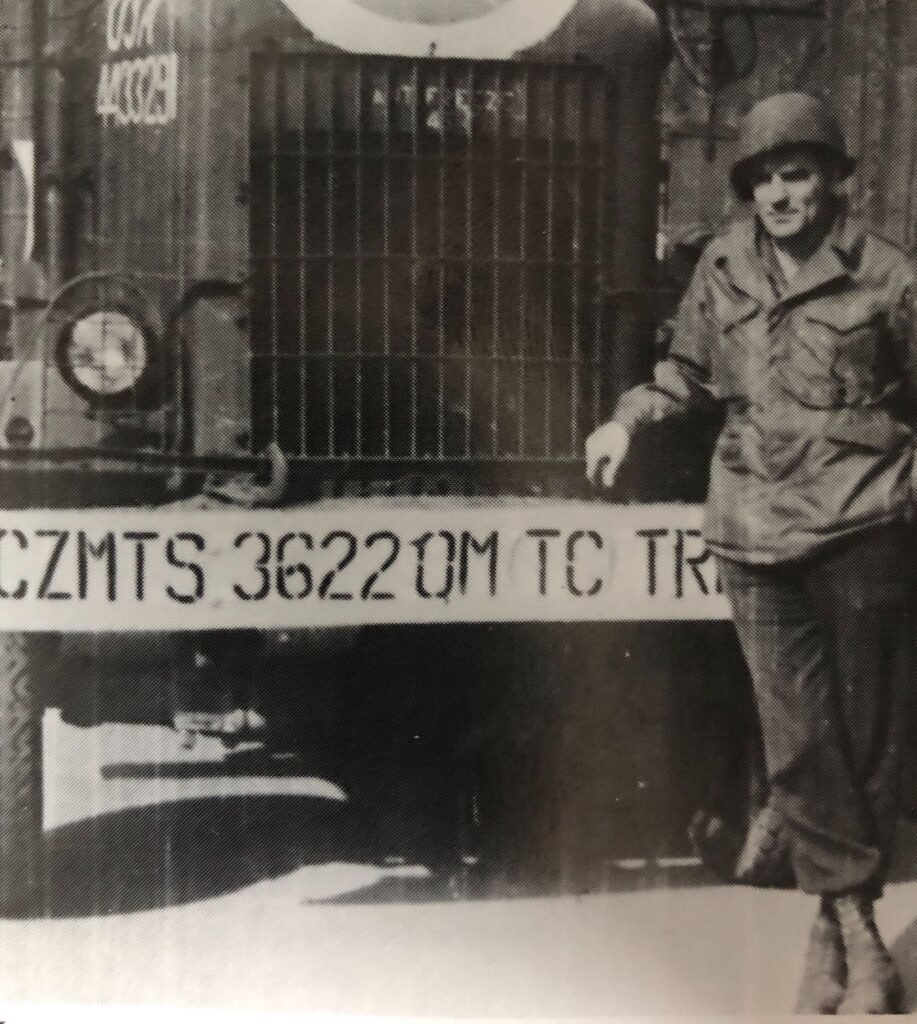
“Today you can buy the Dialogues of Plato for less than you would spend on a fifth of whiskey, or Gibbon’s Decline and Fall of the Roman Empire for the price of a cheap shirt,” L’Amour said. “You can buy a fair beginning of an education in any bookstore with a good stock of paperback books for less than you would spend on a week’s supply of gasoline.”
While on the road, L’Amour and his family maintained a heavy workload and consistent travel. Over about eight years they worked in Texas, Nevada, New Mexico, California, and throughout the Pacific Northwest. L’Amour skinned dead cattle, worked as a miner, and even joined the Hagenbeck and Wallace Circus in Phoenix, where he worked as a roustabout and then became an elephant handler. He left the circus quickly though, as he found the work incredibly hard and the circus uncivilized.
It was during these travels that L’Amour met many laborers and vagabonds who would later inspire some of the characters in his novels, like William “Tell” Sackett from a series of fiction books highlighting the Sackett family, and Chris Madsen, who had been a Deputy U.S. Marshal and a sergeant with the 5th Cavalry.
“You can buy a fair beginning of an education in any bookstore with a good stock of paperback books for less than you would spend on a week’s supply of gasoline.”
L’Amour worked various jobs throughout the U.S., including as a miner, a hay baler, a mine assessment worker, a merchant seaman, and even as a professional boxer to make ends meet. He spent time in countries like England, Japan, China, Borneo, the Dutch East Indies, Arabia, Egypt, and Panama, until moving back to the United States in 1930. He met his family in Oklahoma, where his oldest brother, Parker, was a successful reporter for Oklahoma City’s Daily Oklahoman. It was also in Oklahoma that L’Amour changed the spelling of his name from LaMoore to L’Amour.
As a boxer, L’Amour’s career is largely unsubstantiated. He began practicing as a child with his older brothers and father and claimed that he won 51 of his 59 professional fights. After hanging up his gloves, L’Amour sometimes took jobs as a boxing trainer. While in Oklahoma, he was able to supplement his income by training a Golden Gloves boxing team, and in 1937, he even sold the short story “Gloves for a Tiger” to Thrilling Adventures Magazine.
With “Gloves for a Tiger” and his 1935 short story “Anything for a Pal” published in True Gang Life, L’Amour finally gained some small recognition for his writing. Through the ’30s L’Amour’s recognition continued to grow, primarily with works centering on a British intelligence officer named Jim Mayo. The work itself was timely with the growing threats of war throughout Europe and Asia. Then, in 1939, L’Amour published his first book, “Smoke From This Altar,” a collection of poetry that was only published in Oklahoma.
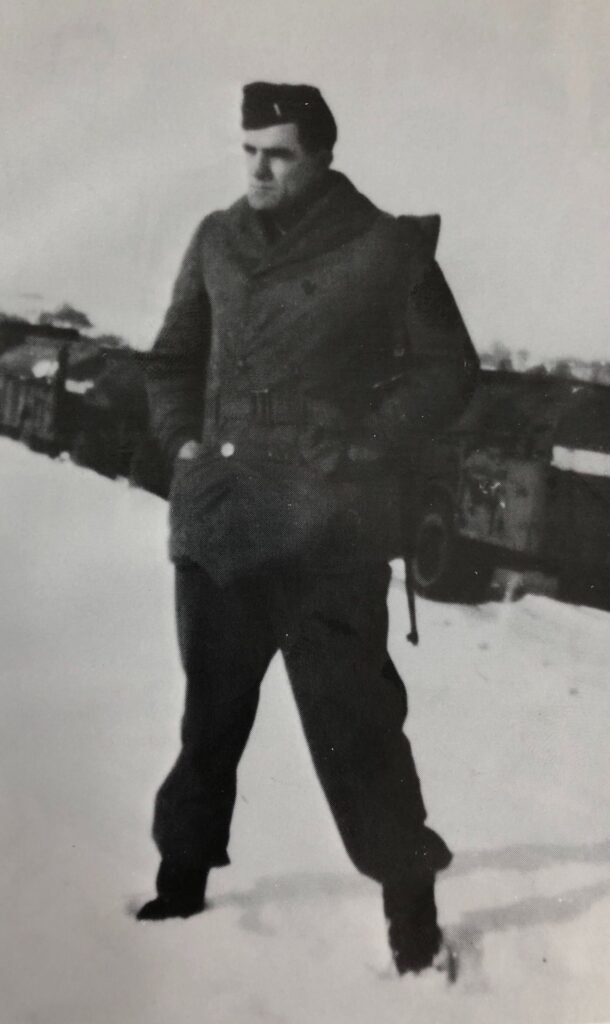
When the United States entered World War II in 1942, L’Amour was inducted into the military and attended Officer’s Candidate School. After being commissioned a second lieutenant, he was sent overseas as part of a transport unit. His military experience inspired much of his writing about the European region and its characters, which is evident in such works as “Meeting in Falmouth” (collected in Beyond the Great Snow Mountains), “The Walking Drum,” “Sackett’s Land,” and “To the Far Blue Mountains.” The novel “No Traveller Returns” — which was left incomplete by L’Amour but was then later finished by his son Beau L’Amour — was also directly inspired by his military service.
Returning to the United States, L’Amour found that his Jim Mayo stories no longer had the same appeal with the American public; they were instead focused on mysteries and Westerns. L’Amour began to write Westerns, and in time was putting out a new short story every week. In 1950, he published his first Western novel, “Westward the Tide,” in England.
L’Amour’s big break came two years later, in July 1952, with the publication of “The Gift of Cochise” in Collier’s magazine. One of the readers was film legend John Wayne. After reading it, Wayne purchased the rights to the story with the intent to produce it into a film, but he left L’Amour the rights to expand it into a novel. The movie and the novel were released on the same day — April, 5th 1954 — with the title “Hondo,” and it catapulted L’Amour into the national spotlight.
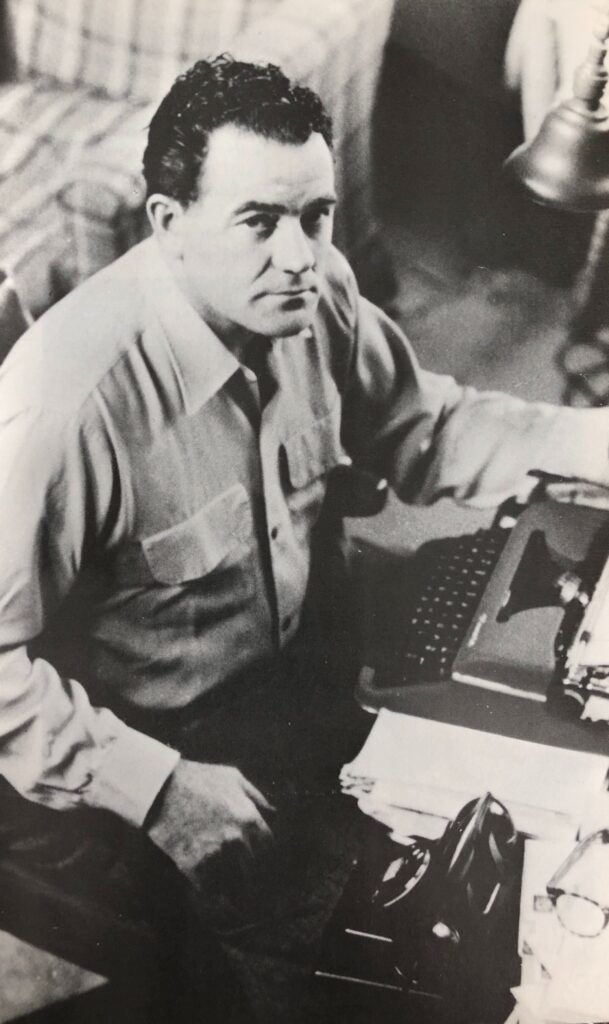
In 1956, L’Amour married aspiring actress Katherine Adams, and he began to see an incredible interest in his stories from Hollywood. Ten of the 17 novels L’Amour had published in the 1950s were turned into motion pictures, plus three of his short stories.
Finally, in 1960, “The Daybreakers” was released in theaters and introduced movie goers to the family featured in much of L’Amour’s fiction, the Sacketts.
By the time of his death in 1988, L’Amour became one of the most recognizable names and faces in Western fiction. There were often entire sections at bookstores devoted to his books. In the early 1980s, he was awarded both the Congressional Gold Medal and the Presidential Medal of Freedom by President Ronald Reagan. When he discovered that he had cancer, he began work on his memoir, “Education of a Wandering Man.” He finished shortly before his death on June 10.
Education was the primary focus of L’Amour’s life, and he spent his life as a student of the world. “Education should provide the tools for a widening and deepening of life, for increased appreciation of all one sees or experiences,” L’Amour said. “It should equip a person to live life well, to understand what is happening about him, for to live life well one must live with awareness.”
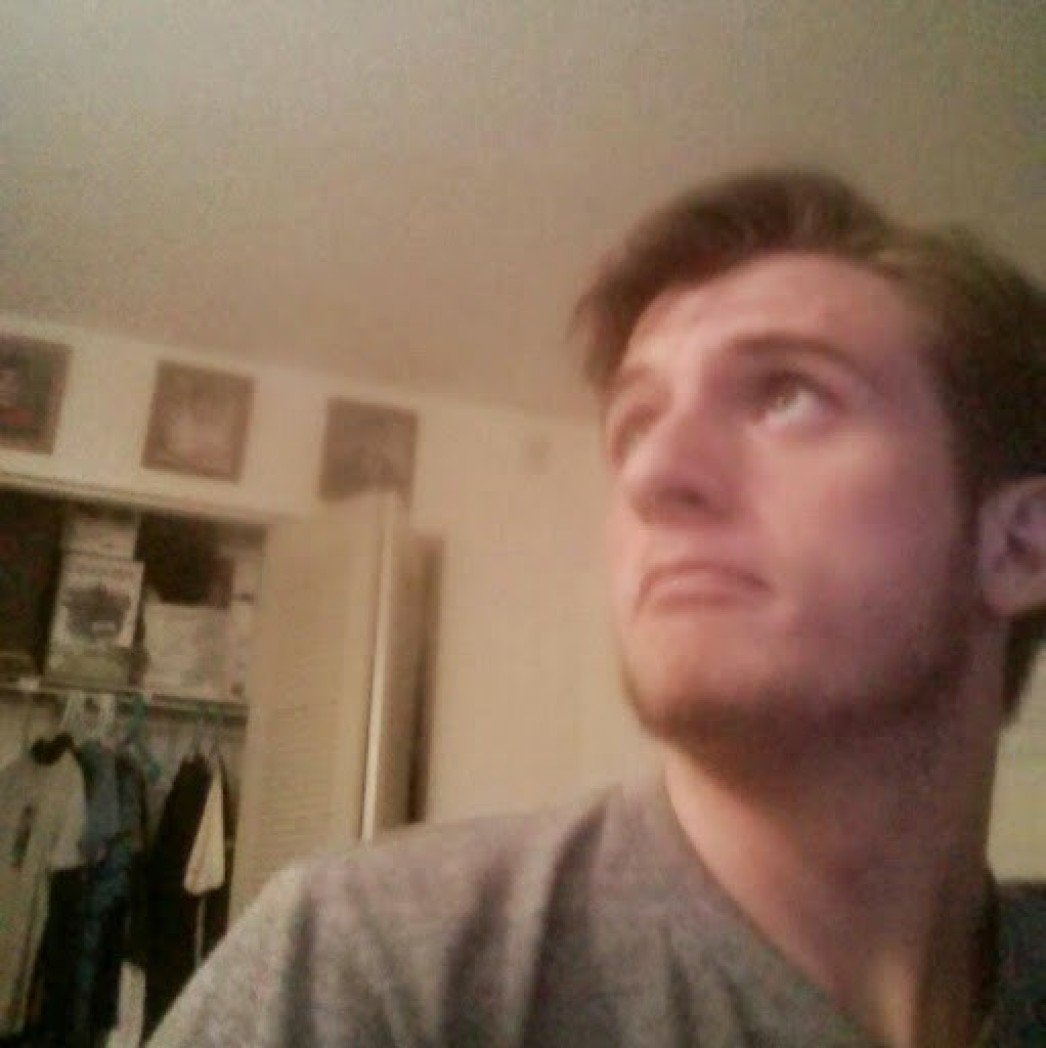
Tim Becker is a freelance journalist and journalism student at Florida Atlantic University. Tim has a diverse set of interests including gaming, technology, philosophy, politics, mental health, and much more. If he can find an angle to write about something, he will. Aside from his interests journalism is his passion. He wants to change the world with his words and photography. Tim writes for a variety of publications including the GoRiverwalk Magazine, the FAU University Press, and his personal blog on Medium.
BRCC and Bad Moon Print Press team up for an exclusive, limited-edition T-shirt design!
BRCC partners with Team Room Design for an exclusive T-shirt release!
Thirty Seconds Out has partnered with BRCC for an exclusive shirt design invoking the God of Winter.
Lucas O'Hara of Grizzly Forge has teamed up with BRCC for a badass, exclusive Shirt Club T-shirt design featuring his most popular knife and tiomahawk.
Coffee or Die sits down with one of the graphic designers behind Black Rifle Coffee's signature look and vibe.
Biden will award the Medal of Honor to a Vietnam War Army helicopter pilot who risked his life to save a reconnaissance team from almost certain death.
Ever wonder how much Jack Mandaville would f*ck sh*t up if he went back in time? The American Revolution didn't even see him coming.
A nearly 200-year-old West Point time capsule that at first appeared to yield little more than dust contains hidden treasure, the US Military Academy said.












